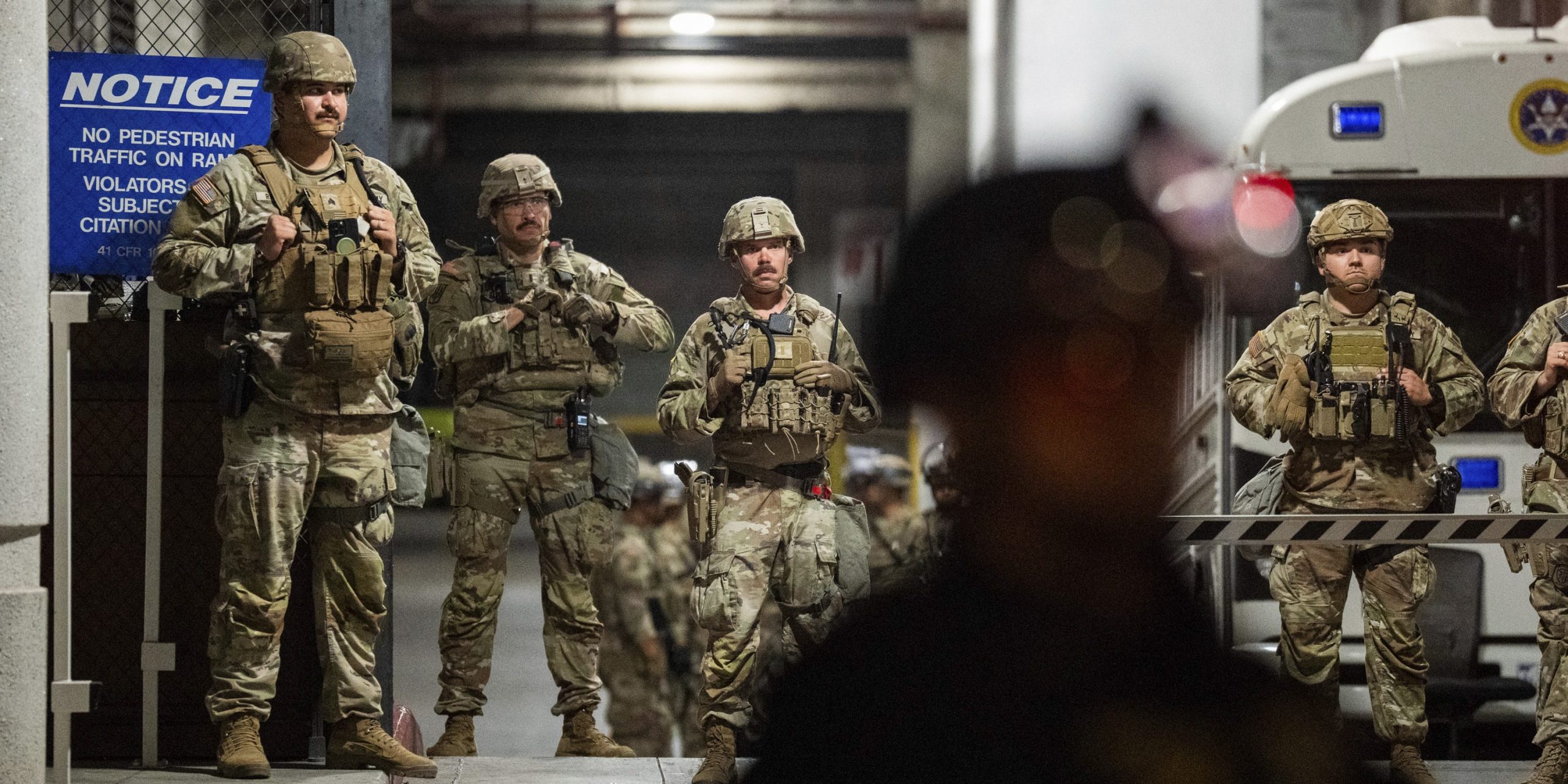The Trump administration has initiated an unprecedented deployment of National Guard troops to immigration facilities across 20 states, significantly deepening the military’s entanglement in civilian law enforcement functions.
This controversial military deployment aims to assist Immigration and Customs Enforcement (ICE) with “alien processing,” primarily administrative work preceding detention. States involved include Arkansas, Florida, Georgia, and Texas, among others, marking a substantial expansion of the National Guard’s role in immigration enforcement.
Experts warn that this move dangerously blurs the lines between military and police duties, potentially circumventing the Posse Comitatus Act, a crucial 19th-century law that restricts military involvement in domestic law enforcement. The Trump administration is reportedly exploiting a provision within Title 32, specifically 502(f), which allows the National Guard to perform law enforcement functions under state control even during federal missions, though its current application is deemed unprecedented.
Elizabeth Goitein of the Brennan Center highlights concerns about this “dangerous and shameful step,” emphasizing that most National Guard forces are trained as soldiers, not law enforcement officers. This lack of specialized training creates considerable risks for both civilians in ICE detention centers and the Guard members themselves, further exacerbating the contentious nature of immigration enforcement.
This latest action follows a pattern of increasing military deployment on American soil under the Trump administration, with nearly 20,000 federal troops already active in various capacities. Prior deployments include forces on the southern border under Joint Task Force-Southern Border, bolstering border security and intensifying operations in states like Arizona, California, and Texas.
The federalization of the California National Guard under Title 10, for instance, led to their involvement in ICE raids, including punitive actions against a summer day camp and marijuana nurseries, tragically resulting in one death. This deployment also hampered firefighting efforts during wildfires, illustrating the multifaceted risks of diverting military personnel from their primary duties.
The Department of Homeland Security and the Pentagon maintain that this ongoing support is critical, asserting that National Guard personnel providing “case management, transportation and logistical support, and clerical support” enable ICE to dedicate more trained agents to core law enforcement activities. This justification underscores the administration’s resolve to bolster immigration enforcement through military assistance.
Critics, like Goitein, caution that diverting National Guard members from disaster response duties, particularly as hurricane season approaches, could place communities in severe danger and lead to preventable tragedies. This continued reliance on military forces for civilian law enforcement tasks raises significant questions about preparedness and public safety.






Leave a Reply